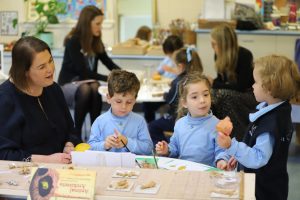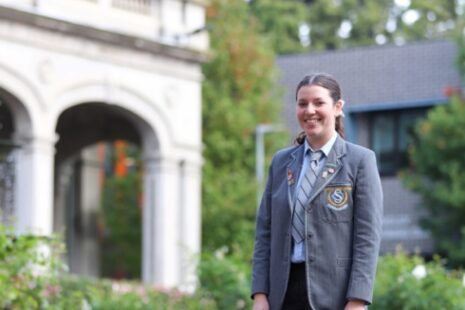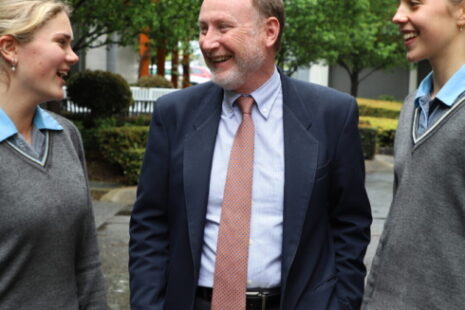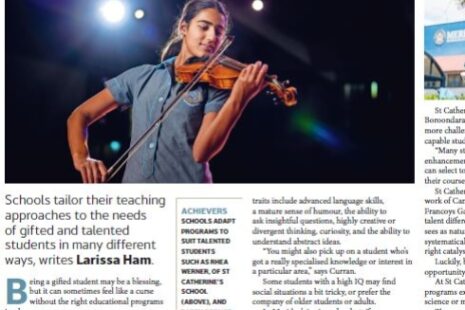Foundations of Learning & Development

“Children learn as they play. Most importantly, in play children learn how to learn.”
It is a very exciting time of year as the children commence their educational journey in the Early Learning Centre. The early years are one of the most important stages in life as this is the time when the foundations for learning, social behaviour and wellbeing are formed.
“We see how early childhood experiences are so important to lifelong outcomes, how the early environment literally becomes embedded in the brain and changes its architecture.” – Andrew S. Garner, Primary Care Paediatrician at University Hospitals Cleveland.
Neurological research demonstrates that the early years are the most important time in a child’s life in terms of brain development. In the first five years of life, a child’s brain develops more rapidly than at any other time in their life. Their early experiences, using all of their senses, stimulate the brain, creating millions of connections and thus causing the brain to ‘hard wire’. This is when the foundations are laid for lifelong learning, wellbeing and social behaviour.
It is imperative that young children are provided with rich, meaningful learning opportunities, and establish positive, caring relationships during their early years as these factors greatly influence how the brain develops. Our role as educators, in partnership with parents, is to provide a secure learning environment where children can develop a sense of identity and belonging; where children are actively involved in meaningful learning experiences; where children are given opportunities to build positive, caring relationships with other children and adults; and where the uniqueness of each child is respected and embraced.

“Children learn as they play. Most importantly, in play children learn how to learn.” O. Fred Donaldson, researcher of children’s play.
Young children need opportunities to be in the world doing things. Albert Einstein describes a child’s play as “the highest form of research.” Children need to be actively involved in meaningful play experiences as learning happens best when it is in context. Young children especially need opportunities to engage in active, hands-on learning. They also need time – time to build relationships, time to have conversations, time to play and explore. We really want to build a lifelong love for learning right from an early age.
Our early learning programs at St Catherine’s are designed to optimise opportunities for the children to learn, develop and grow during these fundamental years. Our aim is for the children to reach their potential by providing them with an education and learning environment that is conducive to this. The learning environments are designed to provoke curiosity and wonder. The experiences offered to the children invite inquiry, thinking, questioning and research. There are opportunities for individual learning as well as for children to work collaboratively as a member of a community. All of these learning opportunities work towards building a positive attitude towards learning and a desire to learn from a young age.
Relationships are integral to everything that we do. Relationships between children, families and educators are nurtured and fostered. Children need to feel a sense of identity within, and belonging to, their learning community. They need to feel safe and secure within these relationships. Once this rapport is established, then the children’s learning will flow.
The early years are undoubtedly the key to lifelong learning. Therefore, by optimising this stage of a young child’s life, this is the best investment you can make to ensure their future wellbeing and success. We look forward to the children’s educational journeys unfolding at the Early Learning Centre this year, for this will be a year of considerable learning, growth and development.
“Education is not preparation for life; education is life itself.” – John Dewey, Educational Theorist.





